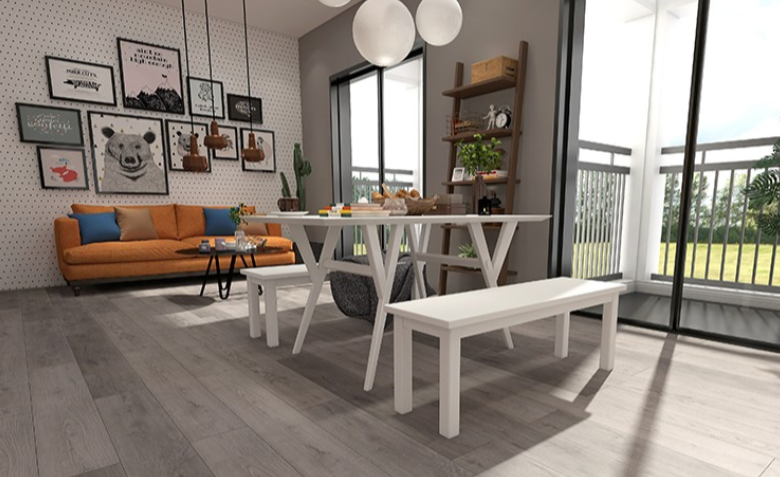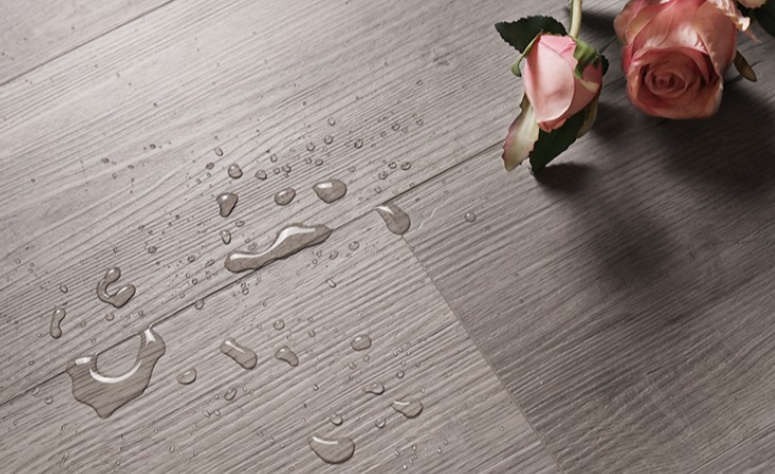Selecting the right flooring materials is a crucial decision for suppliers in the flooring industry. The quality of flooring products not only impacts the satisfaction of your end customers but also affects your brand reputation and overall business success. This article delves into the essential factors to consider when choosing flooring materials that align with your supply chain needs, helping you make informed decisions that benefit both your business and your customers.

Understanding the Importance of Material Selection
Choosing the right flooring materials goes beyond merely picking a product that looks good. It involves assessing various attributes such as durability, aesthetics, and performance to ensure that the materials meet the specific needs of your target market. Flooring materials must also align with industry standards and regulations, making the selection process both critical and complex.
1. Material Types and Their Characteristics
When evaluating flooring materials, it’s essential to understand the different types available and their unique characteristics. Each flooring type has its advantages and disadvantages, and selecting the appropriate one depends on factors like the intended use, traffic levels, and environmental conditions.
1.1 Hardwood Flooring
Hardwood flooring is prized for its durability, timeless appeal, and versatility. It’s suitable for various applications, from residential homes to commercial spaces. Key considerations for hardwood include the type of wood, finish options, and sustainability. Hardwoods such as oak, maple, and walnut offer different looks and performance characteristics, and selecting a species that matches your market’s preferences is crucial.
1.2 Laminate Flooring
Laminate flooring mimics the appearance of natural materials like wood or stone but at a more affordable price. It is known for its ease of installation, durability, and resistance to scratches and stains. Suppliers should consider factors such as wear layer thickness, edge treatment, and the quality of the photographic layer to ensure the product meets customer expectations.
1.3 Vinyl Flooring
Vinyl flooring, including luxury vinyl tile (LVT) and sheet vinyl, is appreciated for its water resistance and ease of maintenance. It’s ideal for areas prone to moisture, such as bathrooms and kitchens. When selecting vinyl flooring, evaluate the wear layer, backing material, and overall construction to ensure longevity and performance.
1.4 Carpet
Carpet offers warmth and comfort, making it a popular choice for residential applications. It comes in various fibers, including nylon, polyester, and wool, each offering different levels of durability and stain resistance. Suppliers should assess factors like pile height, density, and backing material when choosing carpet products.
2. Durability and Performance
The durability of flooring materials is a critical consideration for suppliers. High-quality materials should withstand wear and tear, including foot traffic, heavy loads, and potential impacts. Key factors influencing durability include:
2.1 Wear Layer Thickness
For materials like laminate and vinyl, the thickness of the wear layer plays a significant role in durability. A thicker wear layer typically translates to better performance and longevity. Ensure that the wear layer meets industry standards for residential or commercial use.
2.2 Scratch and Stain Resistance
Flooring materials should be resistant to scratches and stains, especially in high-traffic areas. Test products for their ability to withstand daily wear and maintenance challenges. Products with enhanced resistance features can reduce the need for frequent replacements and repairs.
2.3 Impact Resistance
In environments where heavy objects may be dropped or moved, impact resistance becomes crucial. Materials like hardwood and high-density laminate offer varying levels of impact resistance, so assess the product’s ability to handle such stresses.
3. Aesthetics and Design Flexibility
Aesthetics play a significant role in the appeal of flooring materials. Suppliers should consider the following design factors:
3.1 Color and Pattern Options
Flooring materials come in a wide range of colors and patterns. Consider the preferences of your target market and the design trends in your region. Offering a diverse selection can help cater to different tastes and styles.
3.2 Texture and Finish
The texture and finish of flooring materials affect both their appearance and functionality. For instance, a matte finish can reduce glare, while a high-gloss finish may be more visually striking. Texture options like hand-scraped or distressed can add character to the flooring.
3.3 Customization Opportunities
Some flooring materials offer customization options, allowing suppliers to cater to specific client needs or create unique designs. Explore whether the materials you are considering provide opportunities for customization, such as unique sizes, patterns, or colors.
4. Environmental and Sustainability Considerations
Sustainability is becoming increasingly important in the flooring industry. Suppliers should evaluate the environmental impact of the materials they choose:
4.1 Material Sourcing
Consider where the materials are sourced and their impact on the environment. Sustainable sourcing practices, such as using certified wood from responsibly managed forests, can appeal to environmentally conscious customers.
4.2 Recyclability and End-of-Life Options
Assess whether the flooring materials are recyclable or have end-of-life disposal options. Products that can be recycled or repurposed contribute to a circular economy and reduce landfill waste.
4.3 Indoor Air Quality
Flooring materials should meet indoor air quality standards, as some products may emit volatile organic compounds (VOCs). Look for certifications that indicate low emissions and ensure a healthy indoor environment.
5. Cost and Value
Cost is a significant factor when choosing flooring materials. While it’s important to balance cost with quality, consider the overall value of the materials:
5.1 Initial Cost vs. Long-Term Value
Compare the initial cost of the materials with their long-term value. Higher-quality materials may have a higher upfront cost but can offer better performance and durability, leading to lower maintenance and replacement costs over time.
5.2 Warranty and Support
Evaluate the warranty and support offered by the manufacturers. A robust warranty indicates confidence in the product’s quality and can provide peace of mind for both suppliers and end customers.
6. Supplier Relationships and Reliability
Establishing strong relationships with reliable suppliers is crucial for ensuring a consistent supply of high-quality materials:
6.1 Supplier Reputation
Research the reputation of potential suppliers by reviewing their track record, customer feedback, and industry standing. Reliable suppliers should have a history of delivering quality products and meeting deadlines.
6.2 Supply Chain Efficiency
Assess the supplier’s ability to manage inventory, handle orders, and address any issues promptly. Efficient supply chain management can minimize disruptions and ensure timely delivery of materials.

Choosing the right flooring materials for your supply chain involves a thorough evaluation of various factors, including material types, durability, aesthetics, sustainability, and cost. By considering these key aspects, suppliers can make informed decisions that align with their business goals and meet the needs of their customers. Remember, the right flooring material can significantly impact the success of your business and contribute to long-term satisfaction for both you and your clients.

